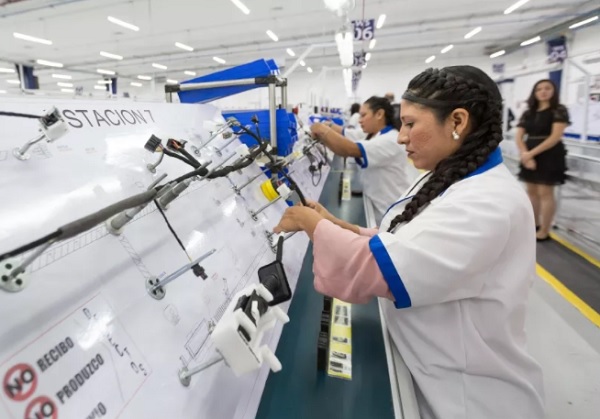Mexico’s manufacturing sector expanded for a third straight month in November, picking up its pace of growth slightly, as tentative signs pointed to a recovery in demand conditions, overall sales stabilized and jobs were created, a survey showed on Thursday, December 1st.
The seasonally adjusted S&P Global Mexico Manufacturing Purchasing Managers’ Index was 50.6 in November, up from 50.3 in October, and above the key 50-threshold that separates growth from contraction.
Mexico’s factories shrank for more than 2-1/2 years starting in March 2020 due to the economic fallout of the COVID-19 pandemic. The index hit a record low of 35.0 in April 2020 during the height of the country’s pandemic-related lockdowns.
“The latest results highlighted hesitant signs of a recovery in demand for Mexican goods, as companies mostly absorbed additional cost burdens and refrained from hiking selling charges where possible to try and boost sales,” said Pollyanna De Lima, Economics Associate Director at S&P Global Market Intelligence.
November’s above 50.0 figure mainly stemmed from an improvement in the trend for sales and stronger jobs creation, the survey said, adding that while inflationary pressures subsided slightly, input costs still rose at a sharp rate.
Mexico’s annual consumer prices slowed more than expected during the first half of November, hitting 8.14% in the period, down from 8.53% a month earlier. Still, core inflation index – which remains a main concern in Mexico as it grapples with high costs – came in above market forecasts.
“Inflationary pressures waned in November, but panelists continued to report increases for a wide range of raw materials. While the rate of input cost inflation remained historically high, selling prices rose at the slowest pace in a year,” De Lima added.
The survey showed that firms were slightly more upbeat about the future, but they exercised caution regarding input buying, production, inventories and headcount.
“External demand remained a key source of weakness, evidenced by another fall in exports, which firms attributed to challenging economic conditions globally and lower new orders from the U.S.,” said De Lima.
TYT Newsroom


